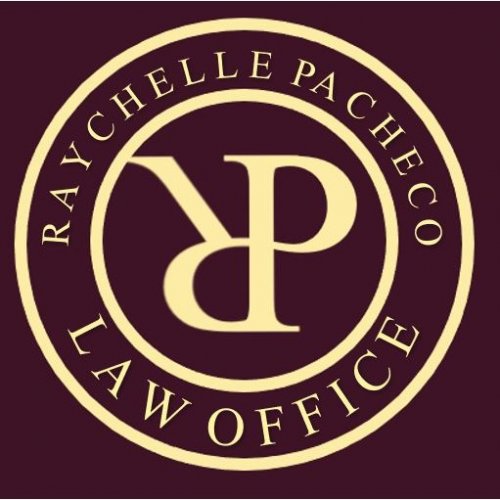Best Estate Planning Lawyers in Makati City
Share your needs with us, get contacted by law firms.
Free. Takes 2 min.
List of the best lawyers in Makati City, Philippines
Philippines Estate Planning Legal Questions answered by Lawyers
Browse our 3 legal questions about Estate Planning in Philippines and read the lawyer answers, or ask your own questions for free.
- Who has the legal right to own a property: the one with the Tax Dec with the name of the deceased father (still not transferred by other claimants for 20 years) or the one with the copy of Deed of Absolute Sale of the property showing that it was sold by
- Who has the legal right to own a property: the one with the Tax Dec with the name of the deceased father (still not transferred by other claimants for 20 years) or the one with the copy of Deed of Absolute Sale of the property showing that it was sold... Read more →
-
Lawyer answer by Recososa Law Firm
Hello: Property ownership questions like this can be emotionally and legally complex—especially when families, old documents, and long periods of inaction are involved. We're here to help you sort this out clearly and lawfully. You mentioned two parties: The one...
Read full answer - Estate settlement dispute
- My grandfather (testator) Died in 1996. There are 8 heirs (siblings) mentioned in his will. The estate tax has not been paid until now. 4 out of 8 sold me their share with a notarized deed of sale and a deed of donation. The other 3 wanted to invalidate/ cancel... Read more →
-
Lawyer answer by Nomos Legal Practice
Hello and thank you for contacting SK Solicitors, a full-service immigration law firm based in Lagos, Nigeria. Kindly let us know how we can help you to solve your legal needs and before we can render legal advice service, you...
Read full answer - Unjust & unfair transfer of title to the heirs.
- Here's a refined version of your statement: "The original owners of the estate were our deceased grandparents. Initially, there was a single-parent land title with an extrajudicial agreement among heirs regarding the subdivision of lots. However, the Local Government Unit (LGU) purchased four parcels of land and transferred the title... Read more →
-
Lawyer answer by Nomos Legal Practice
Hello and thank you for contacting SK Solicitors, a full service immigration law firm based in Lagos, Nigeria. Best Regards, Kingsley Izimah, Esq.
Read full answer
About Estate Planning Law in Makati City, Philippines:
Estate planning is the legal process of arranging and distributing a person's assets and properties upon their death. In Makati City, Philippines, estate planning is governed by various laws and regulations to ensure the proper transfer of assets and protect the rights of beneficiaries.
Why You May Need a Lawyer:
Engaging a lawyer for estate planning in Makati City is crucial to ensure that your wishes are legally upheld and that your assets are distributed according to your desires. Some common situations where legal help may be required include:
- Creating a last will and testament
- Establishing trusts and naming beneficiaries
- Minimizing estate taxes
- Planning for incapacity or disability
- Resolving disputes over inheritance
Local Laws Overview:
When it comes to estate planning in Makati City, several key laws are particularly relevant:
- The Civil Code of the Philippines: This law governs the succession of properties, including rules on testate and intestate succession.
- The Family Code of the Philippines: This code outlines the rules on the rights and obligations of family members, marriage, and inheritance.
- The Tax Code of the Philippines: This code governs the regulations and processes related to estate taxes.
Frequently Asked Questions:
1. What is the difference between a will and a trust?
A will takes effect upon your death and dictates how your assets will be distributed. A trust, however, allows you to transfer assets to a trustee during your lifetime to be held for the benefit of your beneficiaries.
2. Do I need to pay estate taxes in Makati City?
Yes, estate taxes may be applicable depending on the value of your estate. It is essential to consult with a lawyer to help you minimize estate taxes through legal strategies.
3. Can I change my estate plan if my circumstances change?
Yes, you can update your estate plan as your circumstances change. It is recommended to review your plan periodically and consult with a lawyer to ensure it reflects your current wishes.
4. What happens if I die without an estate plan?
If you die without an estate plan or a will (intestate), your assets will be distributed according to the laws of intestate succession, which may not align with your wishes. It is best to consult with a lawyer to create a comprehensive estate plan.
5. Can I handle estate planning on my own without a lawyer?
While it is not legally required to engage a lawyer for estate planning, it is highly recommended. An experienced lawyer can help you navigate complex legal proceedings, ensure the legality of your documents, and provide invaluable guidance throughout the process.
Additional Resources:
For further information and assistance in estate planning in Makati City, Philippines, you may find the following resources helpful:
- The Integrated Bar of the Philippines (IBP): The IBP can provide a list of experienced estate planning lawyers in Makati City.
- The Bureau of Internal Revenue (BIR): The BIR offers information on estate taxes and relevant regulations.
Next Steps:
If you need legal assistance in estate planning in Makati City, Philippines, follow these steps:
- Research and shortlist reputable estate planning lawyers in Makati City.
- Consult with at least three lawyers to discuss your needs and evaluate their expertise.
- Select a lawyer with extensive experience in estate planning and a good track record.
- Inform the chosen lawyer about your goals and provide the necessary documents and information for them to start working on your estate plan.
- Review and finalize the estate plan with your lawyer, ensuring that it accurately reflects your wishes.
- Regularly review and update your estate plan as needed, consulting with your lawyer at each stage.
Lawzana helps you find the best lawyers and law firms in Makati City through a curated and pre-screened list of qualified legal professionals. Our platform offers rankings and detailed profiles of attorneys and law firms, allowing you to compare based on practice areas, including Estate Planning, experience, and client feedback.
Each profile includes a description of the firm's areas of practice, client reviews, team members and partners, year of establishment, spoken languages, office locations, contact information, social media presence, and any published articles or resources. Most firms on our platform speak English and are experienced in both local and international legal matters.
Get a quote from top-rated law firms in Makati City, Philippines — quickly, securely, and without unnecessary hassle.
Disclaimer:
The information provided on this page is for general informational purposes only and does not constitute legal advice. While we strive to ensure the accuracy and relevance of the content, legal information may change over time, and interpretations of the law can vary. You should always consult with a qualified legal professional for advice specific to your situation.
We disclaim all liability for actions taken or not taken based on the content of this page. If you believe any information is incorrect or outdated, please contact us, and we will review and update it where appropriate.















